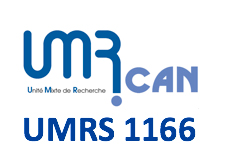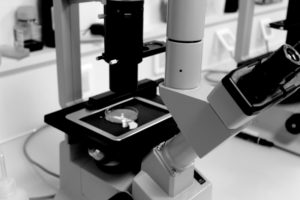Genome-wide association analysis in dilated cardiomyopathy reveals two new players in systolic heart failure on chromosomes 3p25.1 and 22q11.23.
Garnier S, Harakalova M, Weiss S, Mokry M, Regitz-Zagrosek V, Hengstenberg C, Cappola TP, Isnard R, Arbustini E, Cook SA, van Setten J, Calis JJA, Hakonarson H, Morley MP, Stark K, Prasad SK, Li J, O’Regan DP, Grasso M, Müller-Nurasyid M, Meitinger T, Empana JP, Strauch K, Waldenberger M, Marguiles KB, Seidman CE, Kararigas G, Meder B, Haas J, Boutouyrie P, Lacolley P, Jouven X, Erdmann J, Blankenberg S, Wichter T, Ruppert V, Tavazzi L, Dubourg O, Roizes G, Dorent R, de Groote P, Fauchier L, Trochu JN, Aupetit JF, Bilinska ZT, Germain M, Völker U, Hemerich D, Raji I, Bacq-Daian D, Proust C, Remior P, Gomez-Bueno M, Lehnert K, Maas R, Olaso R, Saripella GV, Felix SB, McGinn S, Duboscq-Bidot L, van Mil A, Besse C, Fontaine V, Blanché H, Ader F, Keating B, Curjol A, Boland A, Komajda M, Cambien F, Deleuze JF, Dörr M, Asselbergs FW, Villard E, Trégouët DA, Charron P.
Eur Heart J. 2021 Mar 3:ehab030.
doi: 10.1093/eurheartj/ehab030. Online ahead of print. PMID: 33677556
ABSTRACT
Aims: Our objective was to better understand the genetic bases of dilated cardiomyopathy (DCM), a leading cause of systolic heart failure.
Methods and results: We conducted the largest genome-wide association study performed so far in DCM, with 2719 cases and 4440 controls in the discovery population. We identified and replicated two new DCM-associated loci on chromosome 3p25.1 [lead single-nucleotide polymorphism (SNP) rs62232870, P = 8.7 × 10-11 and 7.7 × 10-4 in the discovery and replication steps, respectively] and chromosome 22q11.23 (lead SNP rs7284877, P = 3.3 × 10-8 and 1.4 × 10-3 in the discovery and replication steps, respectively), while confirming two previously identified DCM loci on chromosomes 10 and 1, BAG3 and HSPB7. A genetic risk score constructed from the number of risk alleles at these four DCM loci revealed a 27% increased risk of DCM for individuals with 8 risk alleles compared to individuals with 5 risk alleles (median of the referral population). In silico annotation and functional 4C-sequencing analyses on iPSC-derived cardiomyocytes identify SLC6A6 as the most likely DCM gene at the 3p25.1 locus. This gene encodes a taurine transporter whose involvement in myocardial dysfunction and DCM is supported by numerous observations in humans and animals. At the 22q11.23 locus, in silico and data mining annotations, and to a lesser extent functional analysis, strongly suggest SMARCB1 as the candidate culprit gene.
Conclusion: This study provides a better understanding of the genetic architecture of DCM and sheds light on novel biological pathways underlying heart failure.
Keywords: 4C-sequencing; GWAS; Genetic risk score; Heart failure; Imputation; Dilated cardiomyopathy.
Published on behalf of the European Society of Cardiology. All rights reserved. © The Author(s) 2021. For permissions, please email: .



